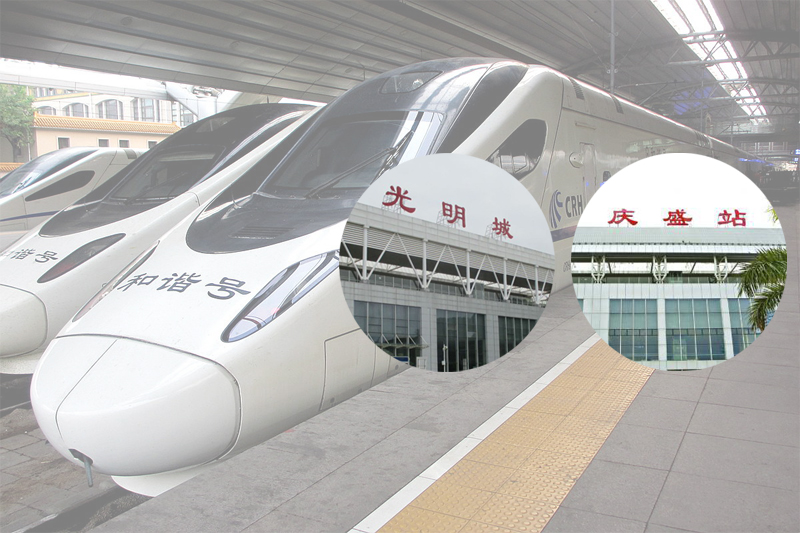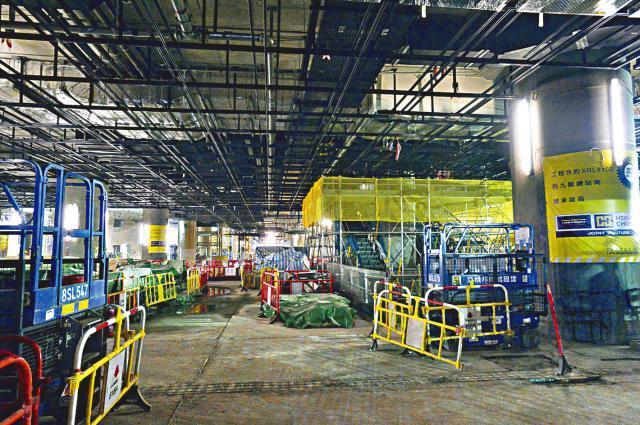The government has responded to a report in a local newspaper on Tuesday by denying that the number of short haul stations on the high speed rail line to Guangzhou has been increased from four to six, something which could make the journey longer than expected.
Since 2009, when the government applied for funding from the Legislative Council, it has claimed that there will be only four stations on the mainland side and that the journey between Hong Kong and Guangzhou will be 48 minutes, compared with the existing train service, which takes around 100 minutes.
However, Ming Pao reporters have tried the line themselves from Shenzhen North station to Guangzhou South station, and a total of six stations are in use or under construction, where trains may stop.

The report said that of the average 170 train journeys made between the stations, only 18 percent are non-stop, while the others make at least one stop, mostly at Humen station. It would require 36 minutes to travel from Shenzhen North to Guangzhou South with one stop in between.
As Hong Kong and Shenzhen North are over 38 kilometers apart, the journey would take about 23 minutes. The entire journey could take about 59 minutes, and even longer if more stops are involved.
It added that Guangmingcheng station and Qingshen station, the two extra stations the government did not mention, are located in new development areas where trains may stop more often as the economy and the population grow.

‘No plan to revise’
In response, the Transport and Housing Bureau issued a statement that “Both the Mainland and Hong Kong have all along been planning the services of the XRL with a total of four short-haul stations on the Guangzhou-Shenzhen Section i.e. Futian, Lunghua (now Shenzhen North), Humen in Dongguan and Shibi in Guangzhou (now Guangzhou South).”
It stated that the planning scheme was submitted to LegCo in October 2009 when it was approved, and a paper submitted to the Subcommittee on Matters Relating to Railways earlier this month stated explicitly that “the four short-haul stations within Guangdong Province… will have direct connection under planning”.
“At present, we have no plan to revise this planning scheme and we have never discussed with the Mainland side the addition of short-haul stations on top of the above-named four stations.” the statement read.
The statement also said that the government is aware of the two stations which were not included in the planning scheme and the information on them is “in the public domain”.
“Their existence on the Guangzhou-Shenzhen Section does not mean that XRL trains to and from Hong Kong in the future have to stop at these two stations. In fact a rail line can have many train stations and trains need not stop at each and every station.” the statement concluded.
MTR Corporation chairman Raymond Ch’ien Kuo-fung said that he believed that the high speed rail project would not “be different from what is expected”.

The other factor of time
Whether a joint checkpoint agreement between Hong Kong and China can be reached may be another factor affecting the journey time for the high speed rail link.
If it cannot be reached, the project would have to adopt the separate checkpoints approach, meaning that passengers have to be checked in both Hong Kong and China.
A measure currently studied by the government is to incorporate relevant mainland Chinese laws into Annex III of the Basic Law to allow the agreement.
But lawmakers have said it would be “dangerous” and would violate the Basic Law or the “one country, two systems” principle.
